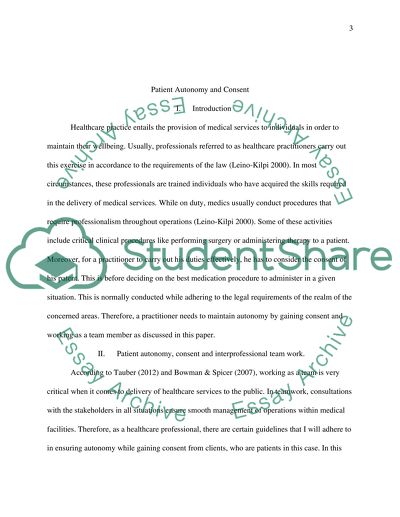Cite this document
(“Patient Autonomy and Consent Essay Example | Topics and Well Written Essays - 1500 words”, n.d.)
Patient Autonomy and Consent Essay Example | Topics and Well Written Essays - 1500 words. Retrieved from https://studentshare.org/health-sciences-medicine/1451985-patient-autonomy-and-consent
Patient Autonomy and Consent Essay Example | Topics and Well Written Essays - 1500 words. Retrieved from https://studentshare.org/health-sciences-medicine/1451985-patient-autonomy-and-consent
(Patient Autonomy and Consent Essay Example | Topics and Well Written Essays - 1500 Words)
Patient Autonomy and Consent Essay Example | Topics and Well Written Essays - 1500 Words. https://studentshare.org/health-sciences-medicine/1451985-patient-autonomy-and-consent.
Patient Autonomy and Consent Essay Example | Topics and Well Written Essays - 1500 Words. https://studentshare.org/health-sciences-medicine/1451985-patient-autonomy-and-consent.
“Patient Autonomy and Consent Essay Example | Topics and Well Written Essays - 1500 Words”, n.d. https://studentshare.org/health-sciences-medicine/1451985-patient-autonomy-and-consent.


